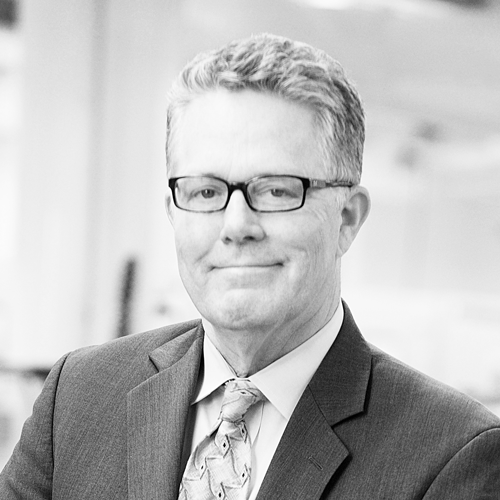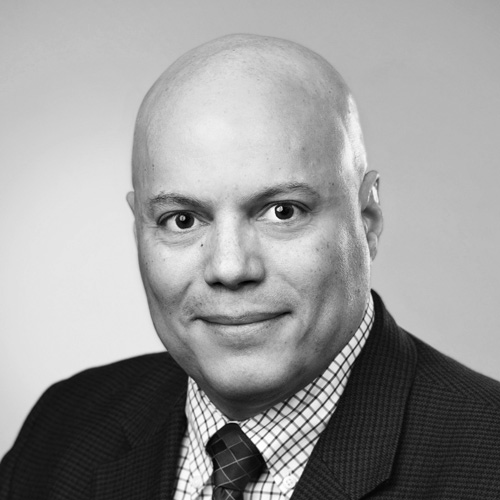One hundred years ago, American Express was a pioneer of on-site health clinics for employees. In subsequent decades, the company helped many workers manage and improve chronic health conditions such as diabetes, hypertension, and obesity. These have improved the physical well-being of many of its 53,500 employees around the world.
While the financial services giant has also provided an Employee Assistance Program (EAP) that attended to mental health for decades, Dr. Wayne Burton set out to improve this aspect of wellness shortly after he was hired as Global Corporate Medical Director in 2009. At the time, many employees were unaware of the breadth of EAP programs available to them and all of the issues for which they could receive help.
“To deliver exceptional customer service, we need exceptional people and we need to take care of them. Just like in physical health, we should be ahead of the game on mental health and well-being.”
Furthermore, in some locations around the world, there is still a significant stigma associated with mental health counseling and services. This point of view discouraged some employees from getting access to services that could benefit them, and Burton wanted to try to change those attitudes.
Convinced that the company could boost the standard of its mental health services to the level of its stellar physical health programs, Burton came up with a plan to raise the profile of EAP programs, destigmatize mental health counseling, and boost the quality of service. As a newcomer to the company, Burton couldn’t be sure how top leaders would react to his proposal, but he did have persuasive arguments.
“The business case is that American Express is known for exceptional customer service,” Burton says. “I said [to leadership] that to deliver exceptional customer service, we need exceptional people and we need to take care of them. Just like in physical health, we should be ahead of the game on mental health and well-being.”
Four-Component Plan to Revamp the EAP
1. Make mental health counselors available every week on site at each of the company’s twenty employee clinics around the world.
2. Hire a clinical psychologist to run the EAP and look at ways to improve its services.
3. Rebrand EAP as “Healthy Minds.”
4. Consolidate the various EAP vendors serving the company into one worldwide provider.
It is particularly important to Burton that employees who are having difficulty have access to services as early as possible. “Minor problems, if not addressed, can become major problems down the line,” he points out. Sometimes, one employee’s tribulations can even impact his or her coworkers—a situation that compounds the consequences for the company.
An employee experiencing a bout of depression following the death of a family member, for example, may struggle with job performance, which could impact the morale of the individual’s work group. The coworkers may be sympathetic to the individual’s plight but unsure how to help—ultimately lowering spirits for the entire group. For this situation, and others like it, grief counseling could not only help the individual in crisis, but also improve morale for the work group.
The American Express leadership team was highly receptive to Burton’s pitch, and he devised a four-component plan to revamp the EAP.
Hiring counselors to be a regular presence at the clinics was the cornerstone of Burton’s plan. These professionals would act as gatekeepers to the many programs encompassing Healthy Minds. They would become experts in all that the program had to offer and would, in addition to offering counseling themselves, refer clients to other experts that could address particular problems. An employee under stress due to financial difficulties, for instance, could be referred to personal financial planners and stress management programs.
Today, part-time counselors work at each employee clinic for a minimum of two half-days per week and up to twenty hours per week, depending on the size of the workforce served by the clinic.
STAT SHEET
53.5k
American Express employees
97%
of employees with access to Healthy Minds
33
countries in American Express’s geographic reach
98%
employee satisfaction rate for Healthy Minds
The rebranding of the program to “Healthy Minds” echoed the “Healthy Living” program that focuses on physical health, which made EAP’s offerings clearer to employees. In addition to this rebranding, Burton engineered efforts to destigmatize mental health services. The company invites prominent individuals from outside the company to speak to employees about their struggles with mental health.
An educational campaign called “One in Four” reinforces that 25 percent of Americans deal with mental health challenges at some point in their lives. The “I Will Listen” campaign, rolled out at every company location, is part of an effort to inform all employees about Healthy Minds through workshops and newsletters. Employees are encouraged to offer colleagues a sympathetic ear and to emphasize the value of getting help early.
The common thread of these efforts is to get more employees to use the counseling services available to them—reiterating that they have leadership’s full support in doing so. “We made it clear that it’s not just OK for you to get help, but we want you to get help,” Burton says.
The effort has paid off. Since the Healthy Minds program was launched, corporate-wide utilization rates have risen steadily to 2.5 times higher than the national average at many sites around the world; American Express has been honored with the Innovation Award from Mental Health America and the Psychologically Healthy Workplace Award from the American Psychological Association; and, most importantly, internal surveys show a 98 percent satisfaction rate for the program.


